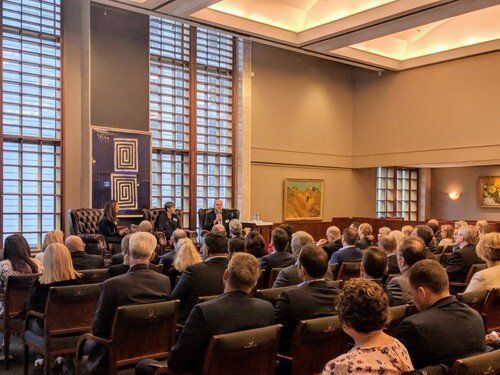News
A Jungle Gym Not A Ladder

To describe the journey to a Non Executive career, Jane Andrews referred to Sheryl Sandberg’s saying ' see your career as more of a Jungle Gym than a Ladder ' - the path is not a straight line and your portfolio of board roles may reflect different board settings and sectors. Jane encourages aspiring Directors to remember the importance of authenticity when exploring board opportunities. Her own experience was heavily shaped by her passion for the start-up space as a founder and investor of numerous innovative early-stage companies.
Dawson Petie is a seasoned Chairman and Non Executive Director with over 30 years of success at the boardroom table. Dawson shared his wealth of experience across different board settings, discussing the variety of opportunities outside of the ASX space. It was clear from the candid manner in which Dawson shared his insights that he has valued the variety of different boards he has been involved with throughout his career, and he indicated that you may be surprised where the next opportunity may appear from. This reiterates the importance of keeping an open mind to the variety of board opportunities out there and to ensure it aligns with your passion and values.
Some key takeaways from our two speakers
- There is a high level of persistence and patience that is required to ensure you are meeting with the right people and keeping your networks up to date. Dawson commented that it is an extensive 'branding and marketing' exercise of your own personal brand.
- The importance of understanding the challenges that exist in different board settings and ensuring your style and skill set suits the board. Dawson said it often comes down to personal relationships on a board of family owned companies. When it comes to government boards, it is important to remember this is a completely different landscape altogether as the board reports to the Minister and hence it is not for everyone. Finally, don't be led to believe that the for purpose sector is less complex than the commercial space. These are often multifaceted businesses that have other layers of accountability that you don't see every day in the commercial world, for example, overlaying religious beliefs. They also face their own unique challenges around capital raising.
- Ensure you have done your due diligence not only around the financials of the company but the reputation of the directors you will be sitting on the board with and the culture they are driving through the organisation.
- Understanding the style of the Chair is essential and ensuring you are going to be able to have a good working relationship.

Share this Article
Recent Articles






